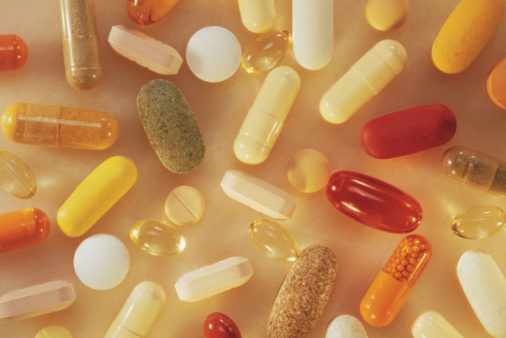Colorado Springs, CO—In early December, the U.S. Anti-Doping Agency (USADA), based here, announced a new public protection initiative aimed at shielding consumers from dietary supplements that contain illicit drugs. This “Supplement Safety Now” coalition of USADA and groups such as the National Football League and Major League Baseball will urge Congress to create regulations that better police dietary supplements, especially those that illegally contain steroids and other drugs.
“We have become greatly concerned about the ease with which products containing designer steroids, designer stimulants and other drugs can be purchased in America’s retail and Internet storefronts,” stated Travis T. Tygart, USADA’s CEO, during a press conference announcing the initiative. “We’re also equally concerned that some of our athletes have used dietary supplements that were either contaminated or intentionally spiked with prohibited drugs and whose products contained ingredients different than what was stated on the labels.”
Just days before the announcement, for example, USADA purchased a supplement containing the anabolic steroid madol (Desoxymethyltestosterone) from Amazon.com. This steroid is prohibited for sale as a legal nutritional supplement. “It’s an obvious problem,” Tygart said, “noting that madol is just one example of illegal substances being included in dietary supplements by “unscrupulous companies.”
The other issue, Tygart stated, are products that don’t contain what’s on their labels. “This is a known contamination problem that’s been documented in several studies,” he said. “The existence of it is unsafe, and undermines the credibility of the legitimate dietary supplement industry.”
The main cause of the obstacle, according USADA, is the “lax” regulatory environment. Without a new regulatory framework, they feel, consumers cannot be confident that their supplements are safe. Thus, the newly formed USADA-led Supplement Safety Now will ask Congress to establish regulations to ensure that all dietary supplements are “safe and effective” and that federal agencies have the tools to enforce them. Specifically, the group is proposing regulatory “enhancements” both before and after supplements hit the shelf. Though Tygart said, “we don’t believe a fundamental reset of DSHEA is necessary,” he said the group will suggest changes to the Controlled Substances Act and the Federal Food, Drug and Cosmetic Act.
Tygart again stressed that a chief thrust of the group’s efforts will be on pre-market enhancements such as requiring dietary supplements to register and provide product names and ingredients. “Currently, the FDA has no idea how many different products are out there containing all these different designer steroids,” he said. The group also would like dietary supplement retailers to have evidence of such FDA registration.
He also suggested having a more solid New Dietary Ingredient (NDI) process in place, so “rogue manufacturers can’t continue to circumvent that existing process.” Other proposals include making it a criminal violation to market illegal products (today, it is a civil violation), immediately scheduling NDI review of new designer steroids, increasing law enforcement efforts and more.

Some in the industry are apprehensive that, if implemented, such changes will send the wrong message to consumers that all dietary supplements are risky and most manufacturers are unscrupulous. Meanwhile, many doubt that additional regulations will reign in the bad eggs when they are already engaging in illegal activity by marketing dietary supplements with steroids. Both the Natural Products Association and the Council for Responsible Nutrition issued statements indicating that the current regulations are adequate without revision. Addressing this issue, however, Tygart stated that current regulations (like good manufacturing practices and standard adverse event reporting) aren’t doing what they are supposed to do in terms of protecting consumers from tainted products.
Tygart specifically invited “legitimate” members of the dietary supplement industry to be a part of the effort. During the press conference, Loren Israelsen, executive director of the United Natural Products Association, stated that his group shares USADA’s concerns and would like to join them in solving the problem of steroid-laced supplement sales. He shared several strategies that are helpful in this endeavor, including illuminating and eliminating the behavior of companies that violate the present Food, Drug and Cosmetic Act and DSHEA; urging FDA and FTC to come down on those that ignore current dietary supplement regulations (which they have the power to do); enhancing the FDA’s ability to identify “products and ingredients that don’t belong in the supply chain”; increasing FTC’s efforts with respect to business-to-business cases; having each state’s attorney general and department of justice pursue cases criminally, where appropriate; and developing better analytical methods for detecting new designer steroids.
Published in WholeFoods Magazine, January 2010










